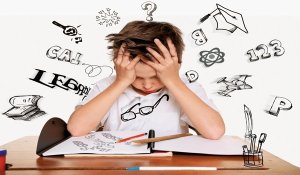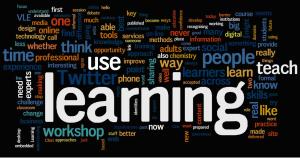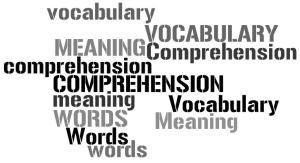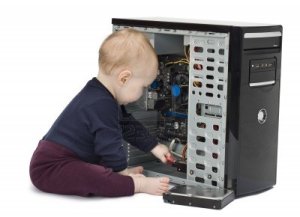If you are a caring parent who is looking to have insight and find practical tools that help with nurturing the great potential that you see in your child — This blog is for you!
Assisting your child to develop these 12 Qualities will not only be the greatest gift you will give him or her, it will also be a gift you give yourself because it will help you become a better parent and human being. How? As you start reading the points you will realise that helping your child to have these qualities means that you have to develop them yourself too.

Do it for your child!
Do it for yourself!
GO!
1. CURIOUS and INQUISITIVE
You want your child to be curious and to ask questions, lots of them! So much so that you have no choice but to do a Google search to give the answer, if necessary.
What is important to consider in this ‘parent-child interaction’ is the development of vocabulary, because within this the child is expanding his or her view of the world.
What you will also be teaching your child is: “Ask and you shall receive”. That means, if you want to find an answer, you must ask a question. And, as the answers are provided, the child will start to understand that “there is always an explanation or solution”. It doesn’t mean that “someone will always provide an answer” but rather “there is an answer out there, and I must find it”.
Encouraging this curiosity by also asking questions to the child will help him or her find “something” that is passionate about. Remember that Vocation is dependent on Vocabulary. If a child is able to develop a passion for a certain subject at a young age, it is more likely that he or she will use it as a way to develop knowledge and skills that might be useful for school and later when reaching the job market.
HOW can you help your child to be Curious and Inquisitive?
- Start a conversation. See where your child’s understanding stands. Develop from there. Ask the questions and provide answers until the child starts asking them.
- Take your child to a park, a forest ,or a beach – speak about the natural world. Go with your child to a science or history museum – something with things to see, touch, and/or interact. Take your child to the zoo or an aquarium – speak about those that we share our world with.
- Tell your child a story of your youth. Maybe something about your job (make it interesting!)
The point is: find something that will bring the Curiosity and Inquisitiveness out. Then tend to it and nurture it.
WHY should your child be Curious and Inquisitive?
“Don’t ask and you shall not receive”. Where would humanity be if we didn’t ask questions? Where would we be if it wasn’t for our curiosity to discover? We would have never left “the caves”.
There is the possibility for your child to create a great life for himself or herself. But, if that curiosity and inquisitiveness is not cultivated, your child will be “too scared” to leave the “cave”.
The world is full of mediocre lives… Don’t let your child settle for it.
2. DISCERNMENT
Parents, understandably, want the best for their children. They don’t want their children to be in situations where their well-being and safety are compromised.
We know what the dangers in this world are and we know how vulnerable children and adolescents are when exposed to them. Kidnapping, cigarettes, alcohol, drugs, prostitution, pornography, gangs… Understanding the dangers and the consequences to avoid them are key for a child to develop effectively and not make choices that can, literally, ruin their lives.
You cannot simply say to your child “I trust you” and hope for the best without giving him or her the tools and understanding so that the child is able to make good decisions. Also, telling your child “don’t do drugs” is not effective because they are actually interpreting it as “don’t do drugs when I am around”. So, they go away and do it anyway, with their friends, because “you are not there”.
HOW can you help your child to have Discernment?
- Develop effective vocabulary. If your child has an expansive vocabulary with clear definitions, it will be hard for the child to be affected by peer pressure. He or she will “know better”, not because “you told them” but because his or her vocabulary is trustworthy.
- Introduce the child to the dangers and explain the consequences. You can tell stories or even show pictures. Don’t do it from the starting point of “scaring them off” (because eventually they will not be scared anymore) but rather from a starting point of educating by presenting the information clearly and without emotional bias.
WHY should your child have Discernment?
The “big why” is obvious: to avoid immediate negative consequences.
The “why” that might not be so obvious is the fact that the child will start to develop an effective and benevolent relationship with vocabulary and information. This is very important because this will stand as a foundation for creating relationships with other children that will eventually become friends and, later on, a partner.
The friends we choose and the person we decide to raise a family with are the result of a process of discernment. Help your child to “fine tune” this quality and you will help him or her find fine friends and, eventually, a fine partner.
3. DETERMINATION and PERSEVERANCE
Determination is the quality of being able to come to a point of closure. For that one must Persevere.
Look at the word: de-TERMINAT-ion. Can you Terminate what you start? Are you Determined to go all the way to end?
Many people lack determination. They make decisions and quit half way, they don’t Persevere. They find all the excuses and justifications to not continue and so never reap the rewards of sustained effort. They have not developed this quality when they were younger and now, as adults, they cannot help themselves to develop it.
If you understand the importance of this you have a self evident reason to make sure your child is Determined.
The usefulness of being Determined can only be understood when you get results. That means, you have to take the “decision” to its end conclusion. “The proof is in the pudding” means, in this context, that you can only reap the rewards of your effort in the end when the “pudding is ready”. If you stop half way during the process of making a “pudding”, you will not have any proof of the usefulness of being Determined because there will be no rewards. As such, your motivation to be Determined will not exist, and thus you will never develop it.
HOW can you help your child to have Determination and Perseverance?
- Do things together with your child that involve a process and which will lead to a result in the end. Cooking or baking is an example.
- Extend the time it takes to complete a task. Baking a cake is like getting an immediate result. Consider doing other things that take a few days, a few weeks, months, or even years. This will also teach the importance of planning and patience.
- Examples:
– Complete a 1000 piece puzzle
– Learn a physical ability: juggling, diablo, roller blades, skating, playing tennis, surfing, martial arts, etc.
– Learn how to play a song on a keyboard or guitar. Make it a life long commitment, maybe…
– Go on a hike that will leave your child physically tired and yet content with the view once you reach the top
– Build a shed (bricolage work)
– Have a big money pot of dreams that will take one year to fill (assist your child to reach that goal)
– Gardening: plant a tree (long term), sow seeds: carrots, lettuce, basil, tomatoes, etc. Teach your child to tend to it regularly. Enjoy the “fruits” of your labour together.
- Be Determined yourself and show it to your child as an example. Let them see your effort, your struggle, your frustration, and don’t stop until you reach the end.
WHY should your child have Determination and Perseverance?
Having this quality will assist to develop confidence and self-esteem.
Being Determined helps with learning and studying. This will translate into good school results. Then he or she will have real freedom to choose what to study at University and which career path to take.
The power of Determination is the power to Determine one’s Life.
4. DISCIPLINE
This is a “marmite word”: Some people love it, some people hate it.
In truth, this ought to be a “water word”: Not only is satisfying, it is much needed!
Why would anyone not like discipline? Because they have been taught a version of “discipline” that they have an aversion to. They have been taught that discipline is to “follow rules”, “doing things I don’t like”, “do the same thing over and over again”, and “being punished”.
What we need is to redefine the word by giving it a meaning that you can say: “count me in!”
The Latin root word for Discipline is “disciplina”, which means “instruction given, teaching, learning, knowledge”.
What did Jesus’ disciples do? They followed his teachings. Therefore, a disciple is someone with the discipline to follow a teaching.
We can say that Jesus’ teachings were guidelines for how to live. Thus, being Disciplined is to be able to follow a plan.
Hear the sound of the word: “Discipline”. Doesn’t it sound like “This-is-the-plan”?
Make a plan, follow the plan. Then you will see that you are Disciplined.
HOW can you help your child to be Disciplined?
- There are many things in daily life that are repetitive. Teach your child that these tasks are part of a daily-plan, and that by following through with it the child is disciplined. Examples:
– Brushing the teeth after meals (at least twice a day, in the morning and evening). Oral hygiene is highly important for a good quality of life.
– Shower daily
– Tidy the room after play: put the toys in the toy box. Never go to bed with a messy room.
– Do homework before play.
– Always wake up and go to bed at a specific time. No snooze. You must adjust the sleeping pattern as the child grows older.
Once this becomes automated the child will not have resistances to do it. Parents should assist their children with the same consistency and discipline that they want their children to have. Eventually they will do it by themselves. Always remember that you, as the parent, must direct the point until the child is ready to do it alone. Make it clear that you are helping your child to “follow the plan” and that you are not doing it for him or her.
WHY should your child have Discipline?
I was once told by a wise man: “Discipline is success”.
Imagine your heart wasn’t disciplined enough to pump the blood on a regular basis… Imagine it would stop once in a while. For how long would your body succeed to live? Your organs would start to be oxygen deprived and would start to fail (fail means “not-succeed”).
If you want to obtain certain results, consistently, then you must do certain actions, consistently. The heart cells have in their pre-programming a very specific PLAN and they follow it, “religiously”.
The sun shines everyday. You can trust it will shine tomorrow. It is “written in the stars”. The sun is “disciplined” in following his plan/path. It is part of its design within the context of the laws of physics.
We live in a physical world, we are physical beings. If we want to “shine” and be successful, we ought to have a plan and follow the plan.
5. INDEPENDENT
We come into this world alone, and we will leave it in the same way. Between the starting and end point we interact and share our lives with other people. Yet, deep down, we are still alone.
The role of the parent is to guide and set free the potential that exists in the child. It is not to limit and create dependency. That is to create a convict, sentenced to a life of perpetual imprisonment.
“If you love somebody, set them free” – Richard Bach.
There is no freedom without responsibility. One must learn how to be independent.
We can say that the process of growing to adulthood is the process of becoming independent. Initially a baby is entirely dependent on the parents. Eventually he or she will become, to a degree, independent to move around as the ability to crawl and walk develop. Then is the independence with regards to physiological necessities such as going to the toilet alone and eating alone. Then dressing, putting on the shoes and tie the laces, etc. The ultimate independence in the current system (and the “freedom goal” for many people) is Financial Independence. If all the steps of developing independence are taken successfully, at the right time, then he or she will achieve financial independence with ease.
There are different Dimensions of Independence:
– Physical Independence: walking, talking, dressing, eating, etc. Everything that involves a “physical doing”
– Cognitive Independence: the ability to “think for oneself” and make decisions alone
– Social Independence: being comfortable alone with oneself
– Financial Independence: earn a living for oneself
HOW can you help your child to be Independent?
- Teach your child to play alone. Teach your child to feel comfortable alone. That means, no TV and no iPads. Too much of it and it will create dependency – and, in many cases, addiction. It is not uncommon to find 3 year olds throwing tantrums when their parents take the iPad away.
- Teach your child to do things alone:
– The obvious ones: walking, eating, dressing and showering
– Putting the table
– Tidying the bedroom
– Do homework/study
– Baking a cake or preparing a meal for the whole family. If taught properly, any 11 or 12 year old can do this with ease.
– Shopping for groceries
– Give your child a screw-driver and ask to disassemble and assemble back together a toy or a piece of equipment (I would NOT suggest the plasma TV…)
– Plan a weekend-day out and be the guide
– Budget a holiday
- Let your child “explore the world alone” (supervised!)
- Teach your child to take initiative for a certain task/game and to demonstrate responsibility
- Teach your child to figure out things for himself or herself (problem solver). For this, being able to do a Google search and follow steps is a major skill.
- Teach your child a few words everyday: provide the correct meaning (non bias) and use the words regularly to demonstrate the context of the word usage. This will assist with developing Cognitive Independence (critical thinking).
- Teach your child about the mind: what are thoughts, feelings, and emotions – and how to deal with them effectively. This will assist with reducing tantrums, manipulation, and resistances to do homework and study for example.
WHY should your child be Independent?
As the child starts to develop these levels of independence, confidence and self-trust ensue. You, as the parent, will also start to get to really know your child and to be able to trust him or her.
Also remember: the sooner your child becomes independent, the sooner you will start to have more time for yourself with the certainty that your job as a parent has been done effectively.
Are you educating your child to become a Financially Free Adult? Or a Financial-Prisoner, dependent on “mom and dad” or “state-charity”?
Will your son or daughter become a “Free-State”? Will he or she be in a State of Freedom? Or will he or she become a “Colony”?
6. INTEGRITY
The word “Integrity” comes from the Latin root “integritatem”, literally meaning “soundness, wholeness, blameless”.
You want your child to be Whole. You don’t want your child to be “broken up inside”. You don’t want your child to “be-lame”(blame). You want your child to have Self-Worth.
To have integrity is to be driven by Principles. Teaching your child the “do’s and don’ts” is acceptable up until a certain age. Eventually, as the child’s vocabulary is developed, you want to provide living-Principles by introducing the name, its definition, and most importantly, by giving and being the living example.
Telling your child “not to lie” and “be honest and truthful” does not produce results. Your child will not “do as you say” but will instead “do as you do”. If what you say is contrary to what you do, he or she will do the same and will lose respect for you because you are not living up to your words.
They know when you lie, they know when you are dishonest, and they know when you are hiding things. They know this because they have learned how to do it from you and because they do the same (and you know when they do it too).
Remember: Your child copies aspects of Who You Are, whether they are good or bad. He or she does not become what you tell them to become (or to do).
If your thoughts and your words are aligned with your living application, then you are Wholesome. This is one of the greatest teachings you can give to your child because it will impact his or her whole life.
HOW can you help your child to have Integrity?
- Live Integrity yourself. That is the only way you can truly assist your child to have integrity. What does this mean in practice?
– Live up to your words. If you say that you are “something” and that you are going to “do something”, then make sure you Live it.
– Demonstrate how your actions and your decisions are based on Principles.
- Principles to demonstrate:
– Self-Respect
– Consideration: for self and others
– Unconditional Being, Doing, and Giving – that means, being and doing things with intrinsic value (no expectation of being rewarded)
– Care for the body: eating healthy and healthy exercise (too much exercise can actually be detrimental for the body)
WHY should your child have Integrity?
Isn’t your child’s happiness the most important thing for you?
Can you truly be happy if you are “broken up inside”? Teach your child HOW to be Wholesome. Teach your child HOW to have a Sound-Mind, so that he or she may create a Sound-Life.
7. PATIENCE
“Rome wasn’t built in a day”.
We live in a world where we have become accustomed to immediate satisfaction. We want things “right here right now”.
“Mommy, mommy, mommy, mommy, mommy….” How many times have you hear this constant and continuous call for attention?
Fast food, fast internet, fast tracking, fast cars, fast trains, fast results, fast growth, fast lane, fast and furious… We live in a fast world, wasting our lives in slow motion.
Turn on the TV: watch cartoons; a TV series; a movie… Immediate comfort, entertainment, and satisfaction.
Grab the laptop or an iPad, put a game on… Immediate comfort, entertainment, and satisfaction.
Do you have money in your pocket? Go shopping for immediate satisfaction! (followed by a sense that those “new shoes” will also not bring you the happiness you are looking for).
Learning how to play an instrument is too hard because it takes time: dedication, commitment and Patience…
Creating a successful business is hard because it takes time: the skills, the knowledge, the “know how”, the “brilliant idea”… All of this takes dedication, commitment and Patience.
If you do not have Patience you will not be able to dedicate and commit yourself to “something” because the rewards take time to come.
You have made the commitment to become a parent and you have dedicated yourself to it. As a parent there are no holidays. As a parent, how great is the importance of being Patient? If you weren’t Patient, you would have already given up on the commitment. “Rome wasn’t built in a day”. Your child is not “built in a day”. All good things take time to create.
According to the Bible, it took The all knowing and all powerful being seven days to create the Universe, . Why not Create everything in one single moment? I believe that that is a lesson about the importance of Patience: to be a creator you must walk the process of creation, and that means, in many cases, that you must endure adversities and suffering. That is why you find “patients” in hospitals.
HOW can you help your child to have Patience?
- Teach your child to call you once and wait a little bit before calling again.
– When he or she calls you, tend to it right away.
– If you are unable to immediately attend to your child, tell him or her: “wait a little bit, I’ll be with you in a moment”.
– If your child calls you again when he or she should be waiting, do not react or get emotional about it. State again, with authority, “I said wait. I’ll be with you soon”. Here you can teach your child to focus on breathing while waiting or to do something else.
– As soon as you can, tend to your child. Remember, you must keep your word, otherwise your child will not trust you and will lose respect for you.
– Be consistent with this application and eventually your child will learn and understand how to get your attention effectively.
- Learn to play a musical instrument. Look at any of the practical examples regarding “Determination”. Patience and Determination have a symbiotic and complementary relationship.
- Teach your child to be patient when the body is healing from a wound or an injury. That is, by definition, being a “patient”.
WHY should your child have Patience?
Being Patient will assist with grounding. It helps with developing an ability to focus and to concentrate that is highly useful. Your child will become more calm and peaceful.
Being Patient is an indispensable skill to develop Resilience and True Grit.
Teach your child Patience, for that in itself is also “a virtue”.
8. CLEAR COMMUNICATION
According to the Bible, the descendants of Noah all spoke a single language. They found a fertile land and decided to build a tower that “reached to the heavens”. God wasn’t pleased. He realised if they all spoke the same language, together nothing would be impossible for them. Then He decided to confuse their language so that they would not be able to understand each other.
Even though I am making references to religion, in no way is this blog about spreading any kind of faith. That being said, there is a lot of wisdom in all religious books. In this example it is demonstrated the importance of language, for if we understand each other and work together, we can indeed “reach the heavens”. That means, we can create a world of peace and harmony.
To express what we think and feel is an extremely valuable ability. Here, once again, vocabulary plays a primary role. If we cannot put a word to what we feel or think, how can we make ourselves be hear and understood?
To Communicate Clearly means to speak from a starting point of clarity, wherein one is “clear” within oneself and able to say acutely what it is that “goes on inside”.
Many problems can be avoided if both the parent and the child communicate using “the same language”. That means that both have the same meaning and understanding of the words used.
Mathematics is a language that mathematicians understand. They know the meanings of the symbols and the rules, and as such they understand each other, clearly. Mathematics is a non-personality-bias language.
1+1=2. If you understand this equation, then we will never argue about it. Problems in communication between people (parent and child included) is when “1+1=2” for one individual and “1+1=3” for the other individual. Here there will exist confusion, friction and conflict. There will be no peace and no harmony.
This is what happens when Communication is not Clear. Words have different meanings and therefore an agreement cannot be reached.
Are you teaching your child the real meanings of words? Or are you teaching a biased-meaning? The truth is that you are unintentionally, unknowingly, indirectly, and by association teaching your child the meaning and value of words that does not correspond to what is real. To understand this issue better I suggest you read this blog:
HOW can you help your child to Communicate Clearly?
- Again, be the example: When you are interacting with your child, be clear inside yourself. That means, you are not reacting, you are not emotional. What you say means exactly “what you say”. Children “read in-between the lines”. They read your body language, they read your tone of voice and the pitch, they read your emotions. Make sure you are Clear.
- Be the example when you and your partner are communicating with each other. This is of utter importance because, even though they might not express in front of you, the way that you and your partner interact will be imprinted on your children and they will speak and be just the same. Save your child from your “bad communication habits” by helping yourself and your partner to communicate more effectively and clearly. Be the person you would like your child to become, for Who You Are (the “good” and the “bad”) is the greatest lesson your child will learn from you.
- Teach a few words every day. Expanding the vocabulary is key to expand the capacity of self-expression.
WHY should your child Communicate Clearly?
We all want to live in a peaceful world. We can all start to create that at our own homes, with our partners and children.
Clear communication is key to have successful relationships and to create a successful life. If you have a clear understanding of the world (of words), then it is easy to make decisions, extend your network, create your career path, and live a life that you know is best for you and for those around you.
9. PRAGMATIC and RESOURCEFUL
We live in a physical world with all the resources we require to exist. Although the human intellect is a major asset, without our feet and our hands it would be useless.
Being able to think in practical terms and finding practical solutions is essential for the creation of happy and comfortable lives.
“Practice makes perfect”. Being Pragmatic and not over-complicating things in the mind is a stress free approach to daily life.
“Where there is a will there is a way”. Being Resourceful is having the certainty that you can trust yourself, the “Source”, to find solutions.
Television exists to “Tell-a-Vision”. A computer screen shows a virtual reality that disappears once the electrical current stops flowing. Unfortunately, too many children are obsessed with these virtual realities and lose touch with the physical world. Their practical sense and resourcefulness is diminished because looking at a screen is a non-activity.
HOW can you help your child to be Pragmatic and Resourceful?
- Spend 80% of the time playing in the “real world” and 20% in the “virtual world”:
– Play with lego
– Play outside with friends
– Do sports
– Play with toys that give use to imagination
- When your child asks a question, tell him or her to try and figure it out alone first (Google search?).
- Being punctual is a pragmatic skill. Assist your child to do things is due time.
- Teach your child how to cook. When he or she can cook to a good standard, ask him or her to come up with a dish.
- Teach your child to use the tools in a tool box. Do some bricolage work together.
- Assemble an Ikea piece of furniture together with your child.
- Ask your child to find out about a certain topic: Internet research, book reading, watch a documentary, etc…
WHY should your child be Pragmatic and Resourceful?
It is individuals with knowledge, skills, critical thinking, and practical insight that have worked together to create solutions and the world that we have today. Finding practical solutions for our collective problems will always be something we need, be it developing fusion technology or more efficient and secure transportation methods.
If you can identify a problem many people face and find a solution for it, then you are a valuable individual for society.
Any career path is easy if the individual is Practical and Resourceful. Nurture these qualities from a young age and your child will be for ever grateful.
10. EMPATHY (Emotional Intelligence)
“No man is an island”. We are social beings, and the systems that we depend on to have a comfortable life are complex and require many individuals to make it work.
Contrary to popular belief, no man is ever a “self-made man”. Everything you do and everything you become has its roots on those that have gone before you. Not realising this and “taking credit” for everything achieved leads to a self-centred and egotistic personality.
“Empathy” means “in-sensation”.
“Apathy” means “no-sensation”.
Would you care for your child is you weren’t empathic for your child?
You feel for your child. You suffer when your child suffers. You sense for your child. You have a sensibility (ability-to-sense) and thus you are sensible regarding the well being of your child. Expand this “ability to sense” towards everyone and you will be a “good person”. You will care for everyone’s well being. You will be able to relate with everyone as you are able to “place yourself in the other’s shoes”.
Empathy is a sense common to all. It is “common sense”. But, if this is not nurtured, it will turn into apathy, indifference, and disregard.
“Do onto others that which you would like them to do onto you”. This is Empathy in application.
HOW can you help your child to have Empathy?
- Teach your child the principle “Do to others what you would like them to do to you”. Also explain it the other way around so that the child understands what not to do: “Do not do to others what you do not want them to do to you.”
- Teach your child to have empathy for animals:
– Get a pet and make an agreement on helping to care for it daily: food, water, play, walks in the park, brushing, playing, etc. Different animals have different needs.
– Watch nature programs with your child and explain the interdependence and interconnectedness between us, the animals, and nature.
- Take your child to a social environment (playground, park, beach, etc.) and teach him or her to share the toys and the space, showing consideration and care for others.
- With siblings, make sure you do not tolerate fights, retaliation, and revenge. When it happens assist them to forgive each other. Spitefulness is unacceptable.”Play fight” is still play, but there is a fine line between fun and pain. Make sure they know the limits by considering each other’s well being.
- Be selective with the kind of toys you give your child, the cartoons, and the games he or she watches and plays. Remember, “monkey see, monkey do”.
WHY should your child have Empathy?
Empathy leads to Emotional Intelligence. This a highly valuable ability because of our social nature and it is essential for self-creation.
Emotional Intelligence is the ability to recognize one’s own and other people’s feelings and emotions, and as such we become more effective and likeable social beings that can have a positive impact on those around us.
Those on the path of apathy have meaningless lives, for they have given up on Life itself. Set your child’s path towards Empathy and a Purpose will ensue.
11. FORGIVENESS
In Life we are certain to feel pain. Many times this pain is inflicted on us by others, but most of the times it is us who inflict it on ourselves.
Forgiveness is key to let go of a painful past to live and enjoy the present.
Forgiving others for their wrong doings is a self-liberating act. Holding a grudge or even hatred accomplishes nothing. Why burden oneself with past pain when letting go is possible?
What is done is done. Who you are here and now and what is to come is your decision.
Forgiving others is an act of wisdom. Forgiving oneself is an act of a creator, for when you forgive yourself you are giving yourself the opportunity to change and to recreate yourself.
Self-Forgiveness is, therefore, the most powerful form of forgiveness. You do not have the power to change others, but you have the power, and the duty, to change yourself for the better.
HOW can you help your child to be Forgiving?
- Teach your child to forgive others. To do so help him or her identify the feeling of animosity experienced and explain that (hopefully) there was no intention to cause pain. Explain the circumstance that caused the pain so that the information (context of the situation) can be used to override the feeling of animosity towards the other. The information is crucial to understand how the pain was created and to come to the point of forgiveness. The one causing the pain should be guided to genuinely ask for forgiveness. Giving a hug as an expression of forgiveness and reconciliation is benefic and strengthens the relationship.
- Teach your child to forgive himself or herself for:
– Being too hard on themselves
– Judging themselves
– Feeling inferior
– Feeling inadequate
– Feeling frustrated
– Feeling impatient
– Feeling hurt
– Feeling ridiculed
– Experiencing irrational fears (i.e, fear of the dark, fear of making new friends, etc.)
– Not having self trust
– Not being confident
Use this forgiveness statement: I forgive myself for accepting myself for …
Examples:
I forgive myself for accepting myself for being too hard on myself. I forgive myself for not accepting myself to realise that I am learning and that I must take things slowly.
I forgive myself for accepting myself to fear the dark. I forgive myself for not accepting myself to realise that “darkness” is the absence of light.
When you can, use practical and real information to remove, for example, “the fear” – as demonstrated above.
Then to take the corrective action that complements the spoken forgiveness.
Remember that the thoughts, feelings, and emotions ONLY have the power that we give them. Self-Forgiveness helps with diminishing that power by instead empowering oneself to decide “what to think” and “how to feel”.
WHY should your child be Forgiving?
For-GIVE-ing is the gift that we give ourselves to live in the Present.
Why live in past-pain when we can give ourselves the joy of the Present?
With Forgiveness your child will develop compassion, empathy, integrity, self-worth, self-respect and understanding.
Forgiveness is the way towards peace and happiness.
12. SELF-LOVE
There are two certainties in life: That it started and that it will end (death).
You can give yourself one more certainty: that you are Loved. But for that, you must be the Love giver and receiver. You must be the Lover and the Loved-One.
Other people might Love you, but that is not your choice. That is not something you should wish or expect. That is not something that you can force others to do. That is not something that you can demand from others.
You Loving yourself is the only love you can and should demand.
Surely you Love your child, but he or she loving himself or herself is more valuable than all the love you can provide. For what would your love mean to your child if he or she does not Love himself or herself? Besides, eventually you will not be here anymore. Who will Love your child then?
It is only when you truly Love yourself that you can Love others. For how do you know if your Love is real if you do not give it to yourself in the first place?
HOW can you help your child to have Self-Love?
- Teach your child to Love his or her own body by:
– Being grateful and showing appreciation for the fact that it is healthy and functional.
– Appreciating how it looks like. Beauty is in the eye of the beholder. Teach him or her not to compare and show how unrealistic the media (cartoons, magazines, toys, adverts, etc.) portray the female and the male images.
– Caring for the body by eating healthy. As a parent, make sure the diet is balanced and also explain that importance of it. Avoid excessive sugar.
- Self-Forgiveness is an act of Self-Love.
- Teach your child how to deal with bullying:
– First step is to have self acceptance.
– Tell your child not to place his or her self-worth in the hands of what others say or think.
– Tell your child why other children bully: because they are insecure and feel inferior. As such they feel the need to bring others down to their lack of self-love and integrity. Tell your child that the bully looks for “approval” and “respect” from others by trying to “diminish” those that they feel inferior to.
– Teach your child to stand up to the abuse by exposing it for what it is. Tell your child to not be afraid to speak to you or a teacher.
– Teach your child that he or she who bullies has a mental sickness called “inferiority complex” and as such he or she needs help. Informing an adult is not only necessary, it is also a duty.
- Teach your child to make choices that do not bring undesired consequences. Do that by explaining the consequences. You know a few because you have experienced them yourself.
- Tell and show your child how you Love-Yourself: What you learned, what you changed in your relationship with yourself that lead to an increase of Self-Love.
Why should your child have Self-Love?
Self-Love is one of the most effective ways to boost confidence and self-esteem. Without Self-Love one will be on the path of self-destruction.
From the moment you are born till the moment you die you are always here with yourself. How you feel about yourself – love, hatred, and everything in between – is your decision to make and to live. Why would anyone choose anything but Self-Love?
What other qualities are important?
I would like to invite you to share what other quality you see are important, how we can help our children develop them and why they are important.
 school, you are likely to find a page with the headteacher’s welcoming statement, expressing their vision for the school, what they have to offer and how “great” their school is.
school, you are likely to find a page with the headteacher’s welcoming statement, expressing their vision for the school, what they have to offer and how “great” their school is.
 Let’s take the example of a new born baby. At first the baby seems quite helpless – and it is, to an extent. Thanks to the mother (and the father) as the source of protection an nutrition, the baby can do something that produces a result. The baby can ‘cry’. As the baby cries, the mother, for example, responds and starts breastfeeding. This is the baby’s first lesson: “If I cry, I might just get what I want.”
Let’s take the example of a new born baby. At first the baby seems quite helpless – and it is, to an extent. Thanks to the mother (and the father) as the source of protection an nutrition, the baby can do something that produces a result. The baby can ‘cry’. As the baby cries, the mother, for example, responds and starts breastfeeding. This is the baby’s first lesson: “If I cry, I might just get what I want.” The vocabulary we have represents the “tool-box set” that we have at our disposal to build our lives. The greater the “tool-box” the greater our construction can be.
The vocabulary we have represents the “tool-box set” that we have at our disposal to build our lives. The greater the “tool-box” the greater our construction can be.

 is expressed.
is expressed.